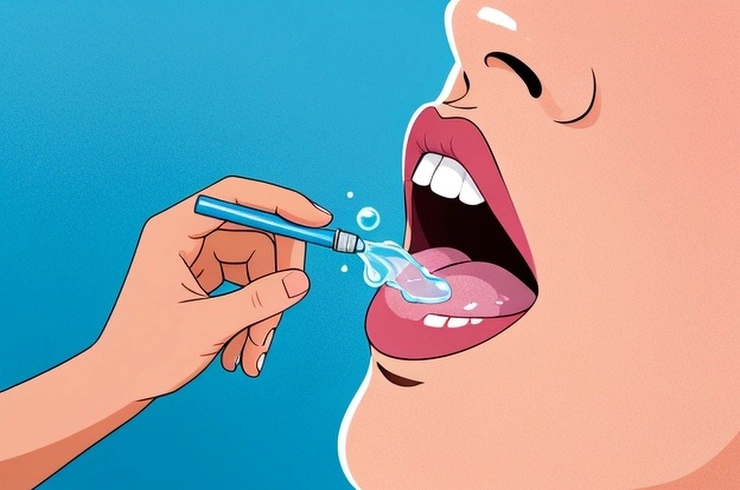
Is your tongue feeling a bit off? It might be signaling a deeper issue, particularly dehydration. While a dry tongue might seem like a localized problem, it's often a tell-tale sign that your entire body is craving more fluids. When your body conserves fluid, saliva production decreases, leading to that parched and even swollen tongue sensation.
Water makes up a significant portion of our body weight and is crucial for survival. Dehydration occurs when your body lacks the necessary fluid to function optimally. Most everyday dehydration is mild and can be rectified by increasing fluid intake. Symptoms can include darker, less frequent urination, headaches, and even an increased risk of dental problems like plaque, tooth decay, and gum disease due to reduced saliva. However, severe dehydration can lead to more serious issues such as confusion, irritability, rapid heartbeat, and even unconsciousness.
Dehydration can stem from simple oversight—like forgetting to drink water during a busy day or while traveling. Other causes include severe vomiting or diarrhea, high fever, excessive sweating, or increased urination due to undiagnosed diabetes or certain medications.
A healthy tongue is typically pink, covered with small, moist nodules called papillae, and adequately lubricated with saliva. Saliva plays a vital role in digestion and protecting your teeth from bacteria. If your tongue appears dry and rough, it's a good indicator of insufficient hydration.
If you're consistently experiencing a dry tongue despite feeling well-hydrated, it's crucial to consult a healthcare professional. Chronic dry tongue can be a symptom of underlying health conditions such as autoimmune diseases (like Addison's disease), side effects from medications, chemotherapy or radiotherapy, hormonal changes, or infections.
To prevent a dry tongue, prioritize consistent fluid intake throughout the day. Incorporate water-rich foods like fruits and vegetables into your diet. If you already have a dry tongue, start by drinking more water. Sucking on ice chips or lozenges can also help stimulate saliva production and provide relief. During this time, maintaining excellent oral hygiene is paramount: brush twice daily, floss daily, and consider using a peroxide- and alcohol-free mouthwash to keep your mouth feeling comfortable and protected.
Pro Tip
The content of the article is shared by netizens, please carefully identify it